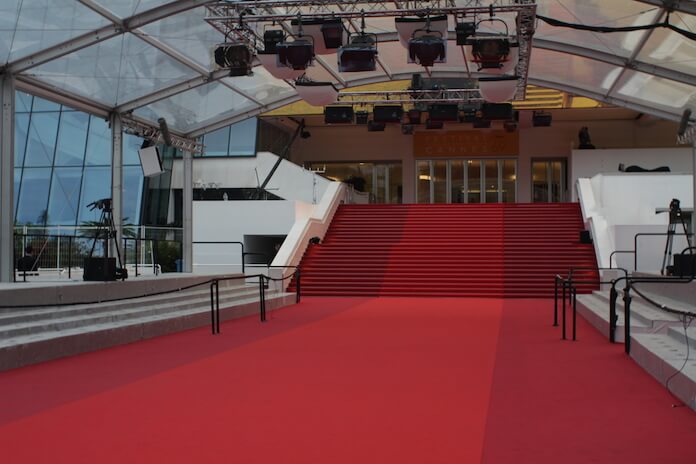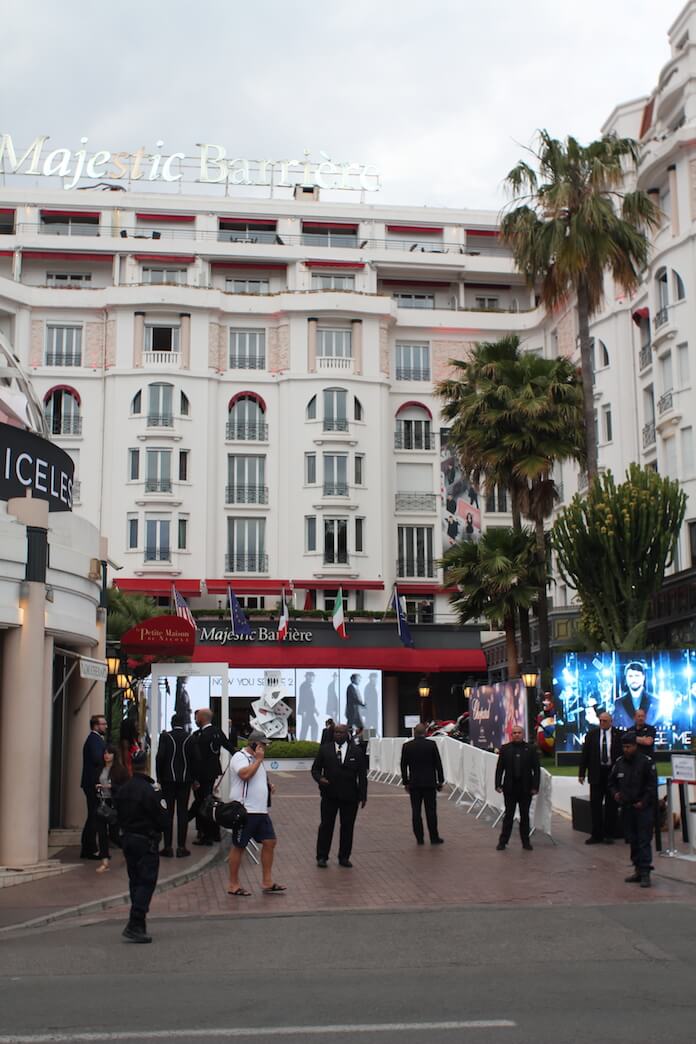As a journalist in Cannes you will have a hard time in the beginning. Especially if you are writing for a magazine or online journal. Cannes wants print media. Your fun in Cannes depends on your worth for the Festival. Sadly enough, one has no influence on the rights he gets during the festival.

The class system in France
The french culture is still governed by clashes in the social classes. You are judged by your car, money, and your job. Everything has its standards and only people who meet them are allowed to access. Hotels and restaurants in Cannes are protected by multiple bodyguards in a black suit and dark sunglasses. They immediately know if you have money or if you are able to afford the prices they charge. Without saying one word they either let you in or deny access for ever. Even though the sun is strong and hot they will never forget a face they have rejected. Respect for that.
This class system is similar to the one inside the Festival de Cannes. When you are registering yourself as a journalist you will have to explain your motivation and your media’s characteristics. Only in Cannes you will know how you got ranked in the festival’s system.

What can one do as a journalist in Cannes?
Depending on the personal interest of a journalist in Cannes there are plenty of options you can choose from. Every day the festival shows up until six premiere screenings in the official categories. Next to that there are multiple other film festivals with all kinds of films. Watching more than five films is almost impossible though.
Not enough? Journalists can attend press conferences and photo calls, where stars and filmmakers present their movies. They answer questions and joke around after their first screening.
The lucky ones get to interview the big stars. But actually every journalist in Cannes can interview some filmmakers if they want to. You will mostly get 10-20 minutes for your questions.
Next to that, every country has its own, so called, pavilion. Domestic film officials talk about national projects and future plans and therefore invite journalists for cocktails and lunch meetings.
Except from the official events journalists can engage in endless activities and write, capture and cover all kind of things in Cannes. From lifestyle to stars, from advertisement to sponsoring – everything is possible in Cannes.
A Journalist in Cannes: From Yellow to White
In the Cannes Filmfestival you have to proof yourself and work your way up – from yellow to white.
If it’s your first time you will probably get a yellow batch. Everyone hates that colour, because this is the lowest class under the journalists. With a yellow card you can watch almost every movie, but that’s about it. You can attend press screenings, not the red carpet ones though.
Even though a yellow journalist envies the ones with a blue batch, they actually have not that much more rights. As a blue journalist you have a higher priority in press screenings, so you might get in while a yellow one has to wait outside and hope that there are enough seats still to be filled.
You definitely made it when your card is either pink or white. As a pink journalist you have your own entry into the cinema and you get access to tickets for the red carpet as well. They are barely seen because of their busy schedule, filled with interviews and meetings.
Every one wants to have a white batch – one cannot be more VIP in Cannes. Reporters from The Hollywood Reprter, Screen or Variety all have such card. They can do whatever they want and get cheered on by festival officials. The press conference with George Cloony and Julia Roberts had a limited amount of seats available and was full after half a minute. The white cards could still get in – through a special entrance protected by big bouncers. They skip the line and enter one of the most important events. In the cinema they even have a reserved row.









